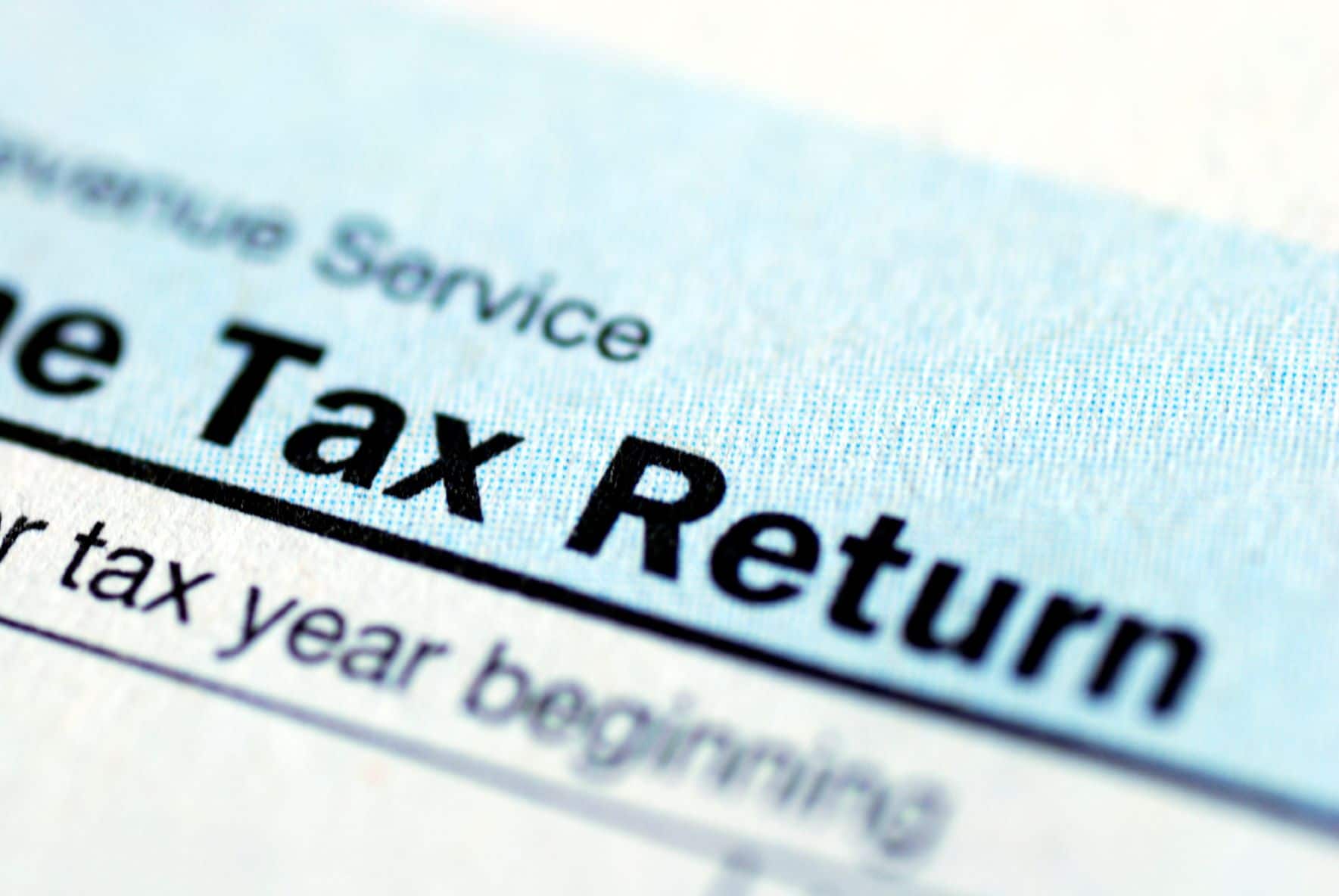Earned income isn’t the only taxable income. Held income and other assets can put you at risk for costly tax penalties here in the U.S.
Facing rising inflation, avoiding these penalties is key to maintaining and growing your savings accounts.

These are the ways you can avoid paying tax penalties on your savings, held income, and other assets.
Tax-exempt Savings Accounts
For starters, avoiding tax penalties is simplest through tax-exempt savings accounts. However, investors must be careful about what this term means and how it applies to various account types.
Depending on your choice of savings account, you’ll need to pay taxes as you liquidate or contribute. Explore the specifics for a 401(k), IRA, Roth account, FSA, and HSA to find out where tax penalties still apply on these “exempt” account types.
401(k)
A 401(k) is a retirement savings account. You pay into it from your pre-tax income directly from your paycheck. From there, the money is reserved (mostly) untaxed and free from penalties unless you withdraw it early.
When it comes to mitigating your tax obligations on a 401(k), it’s important to keep in mind that contributing to such an account can reduce your adjusted gross income. For instance, paying the 2022 IRS limit of $20,500 into your 401(k) allows you to subtract that amount from your pre-tax income, potentially landing you in a lower tax bracket.
There are caveats to 401(k) tax exemption, however. These are:
- FICA taxes (for Social Security and Medicare) are still owed on 401(k) contributions.
- Withdrawal before the age of 59½ results in the IRS immediately withholding 20% of the withdrawn amount, meaning they conserve it to ensure that you can pay due taxes.
- Withdrawal before the age of 59½ can result in an additional 10% penalty on tax returns.
There are exceptions to these rules, however. Extenuating life circumstances like the birth of a child or a divorce may enable you to withdraw before the age threshold with no penalty.
IRA
401(k)s and individual retirement accounts (IRAs) have a lot in common, though there are some important distinctions to be made. Traditional IRAs allow an investor to make tax-deductible contributions to an account. Then, they can withdraw those contributions with deferred tax obligations.
The tax rate on IRA withdrawals is determined by your income in the year you make a withdrawal. This is particularly beneficial for retirees who find themselves in lower tax brackets than when they were working.
In addition, you can at least partially deduct IRA contributions on your tax return if you make under $78,000 as an individual ($129,000 for married couples). Other than that, the same withdrawal limitations exist for IRAs and 401(k)s, with early withdrawal penalty exemptions possible under qualifying circumstances.
Roth Accounts
Roth IRAs differ from traditional ones primarily in the way they are taxed. With a Roth IRA, an investor contributes after-tax income, meaning tax penalties have already been paid. In turn, no additional tax is due when you withdraw the money.
Using a Roth account can be a great way to avoid paying higher tax penalties on your retirement savings. If you invest in cryptocurrencies, for example, trading within an IRA can mean minimizing taxes you might otherwise pay on capital gains from the rising crypto market.
Roth IRAs also benefit from no required minimum distributions (RMDs) that would initiate a taxable event in a traditional IRA. However, these accounts are limited by income and contribution caps.
You can withdraw money from a Roth account at any time, however, penalties still apply for those under 59½ or who have had the account for less than five years. Similarly, exemptions for extenuating circumstances are possible with Roth IRAs.
FSAs
Flexible spending accounts (FSAs) are employer-provided accounts for health expenditures and, occasionally, dependent care. Per your agreement with an employer, a portion of each paycheck is sent pre-taxed to the FSA for emergency use.
FSAs provide a means to avoid tax penalties in themselves. That’s because contributors set aside income that would otherwise be taxed. By contributing to an FSA, you avoid a taxable event and can therefore pay for designated health situations more affordably. The 2022 contribution limit is only $2,850, however, and any remaining funds return to your employer at the end of the year.
HSAs
Nearly identical to FSAs are health savings accounts (HSAs). Account-holders can use an HSA for a variety of medical expenses. Additionally, unused funds don’t necessarily roll back to employers. This means that these funds can be reinvested tax-free.
HSA withdrawals for eligible medical expenses also receive no tax penalty, making them a great choice for high-deductible plans. In 2022, the individual coverage contribution cap is $3,650.
Common Tax Penalties
However, all these account types — tax-exempt in some circumstances — are liable to common tax penalties under certain conditions. Investors should be aware of these penalties if they hope to avoid them.
Early Withdrawal
Many of the savings accounts described here are intended to support individuals and families in retirement. That’s why these tax exemptions were created in the first place. As a result, 401(k)s and many IRAs come with significant tax penalties for early withdrawal.
Investors that withdraw early (before the age of 59½ or, for Roth IRAs, before five years of holding the account) without meeting qualifying conditions face steep tax obligations. These are the penalties that can result:
- The IRS withholds 20% of the withdrawn amount.
- The IRS charges a 10% penalty on early withdrawals for a tax return filed for the year in which funds were withdrawn.
Minimum Distributions
Required minimum distributions exist for both 401(k)s and non-Roth IRA accounts. These are amounts you must withdraw and pay taxes on once you turn 72. RMD amounts are determined by account balance, age, and marital status, and failure to make them can result in a penalty.
The IRS can issue a penalty of up to 50% of the untaken RMD amount. However, Roth IRA accounts are not subject to RMDs or subsequent penalties if the investor is 59½ or has had the account for five years.
Interest Taxes
When distributions are made on savings accounts other than qualifying Roth IRAs, an investor has to pay taxes on interest earned. The amount you owe will depend on your account, age, and personal financial situation.
Avoiding These Penalties
Every investor wants to maximize their savings for retirement and life’s many demands. Fortunately, preparation and education can help you avoid tax penalties for healthier savings accounts.
The following are methods for avoiding tax penalties on held income and other financial assets.
Defer Withdrawals if You’re Still Working
One of the best ways to avoid tax penalties on your savings accounts is to hold off on using them until you’ve reached retirement. While you’re working, you’re more likely to occupy a higher tax bracket. As a result, withdrawing taxed minimum distributions at this time could cost you more.
If a withdrawal is necessary, find out if you qualify for an exemption. Then consider rolling your assets into a crypto IRA without creating a taxable event.
Make Catch-up Contributions
Secondly, make use of catch-up contributions if you are 50 or older. These are additional amounts that investors can save on top of the contribution limits. For all but Roth accounts, you make these contributions before taxes are taken out of the contribution. This means they can work in your favor when adjusting your income for tax brackets and deductibles.
Know When You’re Eligible To Withdraw
Avoiding tax penalties requires that you know your own eligibility when it comes to withdrawals. You may want to access funds sooner rather than later, especially when exploring cryptocurrency investments. However, tapping into your funds too soon will minimize your savings and force you to pay due taxes.
Instead, keep the numbers 59½ and 72 in mind. These are the ages in which the URS lifts withdrawal penalties and you must take required minimum distributions, respectively.
Consult a Tax Professional
Finally, the insight of a tax professional can help you mitigate tax penalties on diversified savings accounts. As you integrate cryptocurrencies into your portfolio, tax-savings measures like wash sales may appear attractive.
A “wash sale” is the selling off of assets for the purpose of claiming a loss while reinvesting those assets in substantially similar assets within a 30-day timeframe. The result can be beneficial to your tax bill; however, the IRS currently has a rule against this.
Though cryptocurrencies may not apply to this rule due to their legal classification as property rather than currency, a tax professional will be able to guide you in an advisable direction based on your situation.
From here, you can best avoid tax penalties for savings accounts. In turn, conserve your finances for when you need them most.




